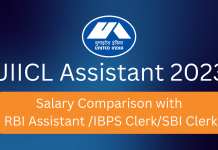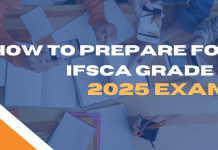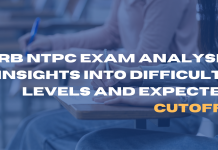The Reserve Bank of India (RBI) continues to be the key regulator of the country’s banking and financial system, and the RBI Grade B officer recruitment remains the primary gateway for candidates aspiring to serve in this prestigious institution. With thousands of candidates applying every year, the competition is intense, demanding not only hard work but also a deep understanding of the selection process and exam structure. This makes the RBI Grade B exam one of the most sought-after opportunities for candidates looking to build a stable and rewarding career in the financial sector.
With the 2025 notification now out, aspirants are advised to begin their preparation early by familiarizing themselves with the syllabus and exam pattern. A well-planned study schedule that covers both the Prelims and Mains phases is essential, as it helps build conceptual clarity, time management skills, and confidence. Before diving into study material, candidates should carefully review the RBI Grade B syllabus, which reflects the knowledge and analytical skills expected from aspirants. Notably, NCERT books remain a reliable resource for building foundational concepts across subjects like economics, polity, and social issues.
Understanding the importance of a well-structured timetable, candidates are advised to begin preparing for both phases simultaneously. This not only helps in all-round development but also is a confidence builder. However, just before immersing oneself in the ocean of study materials, one needs to familiarize oneself with the RBI Grade B exam syllabus. More interestingly, getting to know the coverage that NCERT books can potentially offer itself might be a game-changer.

In this blog, we explore how trusted educational materials, especially NCERTs, can support exam preparation, helping candidates approach the RBI Grade B with structured learning. We also break down the updated syllabus and patterns to help aspirants align their preparation effectively.
RBI Grade B Exam Pattern
With the RBI Grade B notification for 2025 now released, candidates can access the latest details of the RBI Grade B exam pattern & syllabus in the recruitment notification. To stay ahead in preparation, joining ixambee’s RBI Grade B online course is a recommended step, offering guided resources and expert strategies.
The Prelims contains four sections, and the candidates are given 120 minutes to complete this stage, with a sectional time limit. Successful candidates of the Prelims phase will be permitted to take the Mains exam that is a selective examination based on certain predetermined cut-offs.
The Mains exam is a part that consists of both objective and descriptive parts and is conducted in multiple shifts, and separate call letters will be issued for each shift. Every paper is allocated a particular time, which sums up to 330 minutes or five and a half hours. The format of the exam pattern for RBI Grade B Exam 2025 is provided in the details below for aspirants preparing for the exam.
| Phases and Topics in Each Phase | Exam Type | No. of marks | No. of marks | Exam Language |
| Phase 1 (Prelims) (English Language, Quantitative Aptitude, Reasoning Ability, General Awareness) | Objective | 200 marks | 2 hours | Bilingual (Except the test for English language.) |
| Phase 2 (Mains) (Economic and Social Issues, English Writing Skills, Finance and Management) | Paper 1 (Objective & Descriptive)- | 100 marks | 30 minutes (Objective) & 1 hour 30 minutes (Descriptive) | |
| Paper 2 (Writing Skills)- | 100 marks | 1 hour 30 minutes | ||
| Paper 3 (Objective & Descriptive)- | 100 marks | Composite time of 2 hours | ||
| Phase 3 (Interview) | Interview | 75 marks | ||
RBI Grade B Exam Syllabus
The Prelims syllabus covers four key areas: General Awareness, English Language, Reasoning, and Quantitative Aptitude. A strong grip on current affairs and basic concepts is necessary to crack this stage. General Awareness, in particular, holds significant weight, and resources like BeePedia from ixambee offer comprehensive coverage of topics relevant to regulatory body exams such as RBI, NABARD, and SEBI.
The Mains syllabus for Paper 1—Economic and Social Issues—has undergone slight changes compared to the previous year. Notably, topics like Positive Discrimination, Social Movements, and aspects of the Indian Political System have been removed from the Social Structure section. The focus is now on broader economic policies, financial inclusion, sustainable development, and socio-economic challenges.
Paper 2 evaluates candidates’ writing ability, with questions aimed at assessing communication skills and clarity of thought. Meanwhile, Paper 3—Finance and Management—has been expanded to include new topics such as NaBFID (National Bank for Financing Infrastructure and Development), developments in the global financial system, and the role of technology in banking and finance. It also covers foundational subjects like accounting principles and financial statements.
A detailed syllabus breakdown is provided below, helping candidates to align their preparation with the updated requirements of the RBI Grade B Exam 2025.
| Subject | Topics Expected |
| Quantitative Aptitude | Simplification and approximation, Number Series, Quadratic Equation, Number System / HCF & LCM, Ratio and Proportion, Average, Partnership, Ages, Percentage, Profit & Loss, Time, Speed & Distance, Problems on Trains, Boat and Stream, Time & Work / Pipes and Cisterns, Simple and Compound Interest, Mixture & Allegations, Permutation and Combination, Probability, Data Interpretation (DI), Caselet DI and Data Sufficiency |
| English | Grammar, Vocabulary, Reading Comprehension, Passage Making, Error Spotting, Jumble Words, Sentence Framing, Fill in the blanks, Precis Writing, Essay Writing, Descriptive English Mock Test, Reading Comprehension in English Writing |
| General Awareness | Monetary Policies, Banking and Financial Awareness, Economic Terms, Current Affairs (BeePedia), Static GK, Financial and Economic News, Government Schemes. Agreement & Deals, Banking Terms- rates & processes, National Institutions |
| Reasoning | Puzzles, Seating Arrangement- Circular, Square & Linear, Data Sufficiency, Directions and Distance, Coding-Decoding, Blood relations, Inequality, Syllogism, Machine input and output, Verbal Reasoning, Ordering and Ranking, Arrangement and Pattern, Scheduling, Distance and Direction, Ranking |
| Economic and Social issues | Growth and Development, Nature of Indian Economy, ESI Lectures Social structure in India, Government Schemes, Globalization |
| Finance and Management | Basics of Derivatives, RBI Circulars, Financial Markets, Section Test Finance, Extra content for Finance concepts, Finance Lectures, Overview of Finance Syllabus, Financial System, General Topics in Finance, Basics of Accounting and Financial Statements, Extra content related to Banking industry, Motivation, Emotional Intelligence, Personality, Analysis of Interpersonal Relationship, Organisational Change, Conflict Perception, Introduction to Management; Evolution of management thought, Extra Readings, Leadership |
NCERT Books for RBI Grade B
A trip on the RBI Grade B exam starts with an intelligent planning, and , and NCERT books are essential resources. These books contain crucial topics for Prelims as well as for Mains. They have provided a strong core of understanding for students in English, Mathematics and Social Sciences. For an RBI Grade B exam specific discussion on which NCERT books are to be dealt with is presented below. We also recommend practicing with ixambee’s RBI Grade B Mock Tests and RBI Grade B Previous Papers to improve your skills.
- From Class 6: Social and Political Life Part 1: Social and Political Life Part 1 This is a comprehensive book of 80 pages that deals elaborately with Diversity, Government, and Livelihoods, which is required for ESI paper in RBI Grade B Phase 2. It is written in simple language with least words per page, so study material can easily be covered within two hours. The content is simple and enhances understanding, making it the perfect starting point for hopefuls who want to develop a strong groundwork for the examination.
- From Class 7: Social and Political Life Part 2: You can then move on to Class 7’s “Social and Political Life Part 2,” a 100-page book with over 70 pages of reading content. This segment places a level of stress on Equality, State Government, Gender, and Markets, refining your understanding of key concepts crucial for success in the RBI Grade B exam. These topics are important and are a manageable reading load making this book an invaluable resource, which ultimately means you get a clearer understanding of the important subjects.
- From Class 8: Social and Political Life Part 3: As you move to Class 8, focus on some select units of “Social and Political Life Part 3.” You can focus on Unit 4, “Social Justice and the Marginalized,” and Unit 5, “Economic Presence of the Government.” This focuses on selective reading within the subjects only relevant to the RBI Grade B examination, allowing you to make the most of your efforts at preparation.
- From Class 9: Democratic Politics-1 and Economics: From Class 9: In Class 9, pay special attention to “Democratic Politics-1” by studying Chapters 4, “Working of Institutions,” and Chapter 5, “Democratic Rights.” Additionally, study the Economics book-a great four-chapter book. Skip the story of village Palampur in order not to waste your time there and make maximum usage of this study session about understanding important topics for RBI Grade B exam.
- From Class 10: Understanding Economic Development: You should move onto”Understanding Economic Development” once you reach this stage. This is a very important book which covers a lot of important chapters on development, sectors of the Indian Economy, Money and Credit, Globalization, and Consumer Rights. You should spare some time for each section, so that you get a very clear understanding of the layered aspects of the questions that are important for the RBI Grade B exam.
- From Class 11: Indian Economic Development: Indian Economic Development: Take a deep dive into “Indian Economic Development” from Class 11. This fairly important book unfolds insights into critical aspects such as LPG reforms, Current Challenges, Poverty, Human Capital, Rural Development, and Employment. The subject material should be learned in its entirety; by doing so, you develop a very foundational knowledge that is critical for passing the RBI Grade B exam, so you’re prepared to face questions that cover an entire range of economic situations.
- From Class 12: Introductory Microeconomics and Macroeconomics: The final mile of preparation in Class 12 gives you two precious gems: Introductory Microeconomics and Macroeconomics. It requires meticulous reading to get a good conceptual understanding of economics. Get into the nitty-gritty of microeconomic and macroeconomic phenomena, sharpening your analytical abilities so that you’ll be ready for the subtle questions that will appear in the RBI Grade B exam. With this comprehensive approach, you are more prepared to face the twists and turns of economic theory and application.
Prepping with NCERT for RBI Grade B: Key Takeaways
Starting on an RBI Grade B exam preparation journey with the NCERT books is a strategic plan to fortify the fundamental concepts. From summary points to brief analysis, these key takeaways steer aspirants through a comprehensive approach for the exam.
- Get Closely Acquainted with NCERT: Take the help of NCERT books and get into the grassroot study with the fundamentals for your RBI Grade B exam preparation. The NCERT book has been used to teach and reinforce fundamental concepts for cracking the exam. Begin with the step by step reading of every subject, noting down points to have a strong basic concept imperative for success..
- Summary for Quick Revision: You can also make use of the summaries provided at the end of the NCERT chapters to revise effectively. These summaries are comprehensive and cover most of the important chapter topics. They also have enough information about the key points you need to know. The condensed nature of these summaries ensures that you can review essential concepts swiftly and effectively during your revision hours.
- Solver Examples for Application: Solve examples in the chapters to facilitate application to real-world problems. These examples are written in a short way that really helps with easier revision. Important points next to the solved examples are provided that really assist in using them to better appreciate the presented important information
- Online Accessibility and Simplified Language: The convenience of its online access makes NCERT books suitable for tech-savvy learners. The language used is simple, easy to understand, thus understandable by all kinds of students; concise presentation style that aids in clear understanding of fundamentals by those aiming to rebuild their basics
- In-Depth Knowledge Beyond Fundamentals: Know that though NCERT books are perfect for teaching fundamentals, in-depth knowledge is required for a comprehensive exam preparation. For these reasons, pursue in-depth knowledge concerning each topic and do more research to expand your knowledge beyond the fundamentals.
- Competitive Exam-Oriented Analysis: Think and analyze the concepts from competitive examination perspective. Refer the previous year papers to know how a topic is put in the paper and how questions are framed. Try to solve practice papers to sharpen your examination skills and study further also from other sources other than NCERT.
- Elevating Written Skills Beyond Textbooks: You can give a boost your written skills with NCERT books. You might be aware by now that NCERT books giver you enough of a foundation for you. This means that you can also improve and evolve your writing skills which means you need practice beyond textbooks. You can improve upon your writing skills stand out in the exam and communicate your ideas more effectively.
- Current Affairs and Time-Efficient Math Strategies: You need to be aware of the limits within the NCERT when it comes to providing more information regarding current affairs. You can balance out your knowledge by reading newspapers and journals. In addition to this, when you take a closer look at Maths strategies, you should be focusing on time management skills. While solved questions in textbooks are valuable, you should also try out new methods that take lesser time, which is ultimately important when it comes to the RBI Grade B exam.
Summing Up
While NCERT books are the bedrock of the preparation for RBI Grade B exams, one cannot rely on them exclusively. They offer a solid foundation but look for an added avenue to cross troublesome questions. However, daily newspaper reads and keeping abreast with current affairs are additional supplements that are totally indispensable. Conclusion NCERT books are crucial, but to perform well in the RBI Grade ‘B’ exam, it is crucial to have diversified references in the preparation strategy.
At ixamBee, we specialize in providing comprehensive online courses for government exams and online courses for government jobs. Our expertly designed courses for government jobs cater to a wide range of upcoming government exams. Whether you’re preparing for specific courses for government exams or seeking general guidance, ixamBee offers the resources like Beepedia previous year papers, SSC CGL, SSC CHSL, SSC MTS and other mock tests to succeed in exams like RBI Grade B, SEBI Grade A, NABARD Grade A, RRB NTPC, SSC MTS, NIACL Assistant, and more.
Also Read
Current Affairs Preparation for RBI Grade B Exam
New Question Patterns for RBI Grade B
NCERT Textbooks for RBI Grade B















